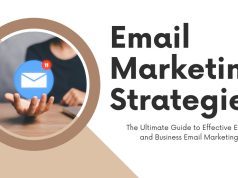Arranging a church activity demands careful organizing. But missing the correct marketing means that since even the most righteous of get-togethers can be overlooked, everything goes without notice of any kind. To ensure that your event reaches potential people, effective marketing also makes links in your community and encourages long-term engagement with your church.
Whether you’re holding a benefit, aiming to inspire youngsters, or just want to enjoy the season, the blog offers practical suggestions for drawing people into your church event successfully.
Why Marketing Matters for Church Events
Church events aren’t just about attendees; they’re about creating opportunities for spiritual growth, community bonding, and outreach. Marketing amplifies the visibility of these events, ensuring they reach those who need them most.
Here’s why marketing is important:
- Visibility: A well-marketed event ensures people actually hear about it.
- Engagement: It can encourage interaction with your church beyond Sunday services.
- Community Outreach: Your events are a powerful tool to connect with those who might not attend otherwise.
Without effective promotion, even the most meaningful event might fail to attract attendees. Thankfully, marketing doesn’t need to be overwhelming. With a few key strategies, you can maximize your reach.
Step-by-Step Guide to Marketing Your Church Event
1. Know Your Audience
Marketing begins with understanding who you’re trying to reach. Different audiences require different approaches.
- Church Members: Use internal methods like announcements during services, newsletters, and bulletin boards to get the word out.
- The Local Community: Use outreach in local neighborhoods, partnerships with businesses, and social platforms to bring in those not currently active in your church.
- Specific Groups: Hosting a youth event? Tailor your messaging to students and their families.
When you tailor your message to match your audience’s needs and interests, your marketing efforts will naturally yield better results.
2. Create a Clear & Memorable Message
Your event needs a message that captures attention and clearly communicates what attendees can expect.
- Be Clear: Mention the event type, date, time, and location upfront.
- Highlight Benefits: What’s in it for attendees? Will they grow spiritually, enjoy great music, or connect with others over coffee?
- Add a Call-to-Action: Clearly share the next step. For example, “Sign up today!” or “Join us this Sunday!”
3. Use Digital Marketing
Modern church outreach goes beyond word of mouth. Here’s how to leverage digital tools to maximize your event’s reach:
a. Social Media Platforms
Social media is a powerful (and free) tool to promote your event. Utilize the following tips to get the most out of it:
- Create an Event Page: Platforms like Facebook allow you to create public event pages where you can share updates, photos, and videos.
- Leverage Instagram Stories: Share behind-the-scenes preparations, countdowns, and event reminders via Instagram Stories or TikTok.
- Encourage Sharing: Ask congregants to share event posts to their own profiles for increased visibility.
b. Email Marketing
Emails remain one of the most effective ways to engage your audience. Use email newsletters to remind members about the event. Include compelling subject lines like, “You’re Invited! Join Us for [Event Name].” Don’t forget to include a prominent RSVP button or link.
c. Church Website
Post all event details on your church’s website. Make sure it’s easy to find and contains all the relevant information. Bonus tip: Add a countdown timer to create a sense of urgency!
d. Online Advertising
Invest in localized or affordable advertising options like Google Ads, Facebook Ads, or Instagram Ads to reach a broader audience. Many platforms allow you to target people nearby or those with specific interests.
4. Leverage Traditional Marketing
While digital is vital, traditional methods still play an important role, particularly for outreach in local communities.
- Bulletins & Flyers: Create visually appealing flyers and post them in community spaces, such as cafes, libraries, and grocery stores.
- Posters & Banners: Hang banners or posters in high-traffic areas near your church.
- Word of Mouth: Encourage your congregation to invite friends, family, or coworkers personally. A heartfelt invitation can go a long way.
- Local Media: Reach out to local newspapers or radio stations to share news of your event, especially if it’s open to the entire community.
5. Collaborate With the Community
Partner with local businesses or organizations to spread the word further. For example:
- Ask a popular café to post your flyer and offer free coffee vouchers for event attendees.
- Collaborate with schools on outreach for youth-focused events.
These partnerships are win-win scenarios for both parties while enhancing trust within the community.
6. Build Anticipation Leading Up to the Event
Don’t just announce the event once and leave it at that. Keep the excitement going with regular updates.
- Show sneak peeks of the preparations.
- Share testimonials from people who attended similar events in the past.
- Use countdowns or short videos to stir excitement.
The more you remind people about the event, the more likely they are to show up.
7. Engage Attendees Post-Event
After your event concludes, don’t forget to follow up. Post-event engagement is crucial for fostering long-term relationships.
- Share photos and videos on social media with a heartfelt thank-you message.
- Send a follow-up email thanking attendees and inviting them to future church activities.
- Provide opportunities for feedback or next steps, like signing up for future events or joining small groups.
Final Thoughts on Successful Event Marketing
Marketing your church event doesn’t need to break the bank or overwhelmyour team.
By combing thoughtful planning, digital tools, traditional outreach strategies and a welcoming message, itspossible to create buzz and excitement -all while strengthening your church’s relationship with the community.
Start small and build. Remember even the smallest of steps can make meaningful connection.
Whether your goal is to bring in new faces, engage your congregation, or foster deeperconnections in the local community, Good marketing can make your church event a significant success.
Once your church eventsare ready to enter their nextsm, consider reaching out for some more tailored marketing support. We can build strategies that really make a difference together.









